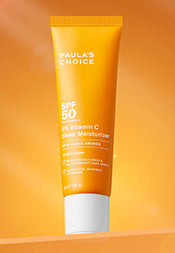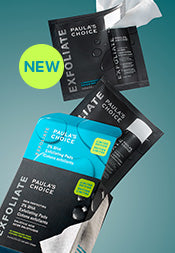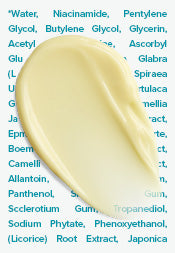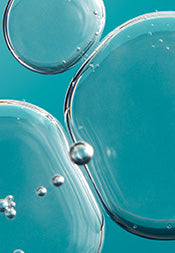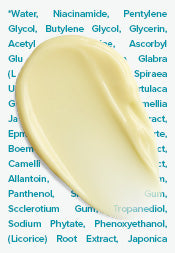Best Face Masks by Skin Type & When to Apply Them
Face masks can play a beneficial supporting role in one’s skincare routine and can also be a great way to pamper yourself. They’re quick and convenient. However, not all face masks work for everyone.
First, consider your skin type and concerns when choosing a face mask to achieve the best results.
There are many types of face masks out there, including clay and charcoal masks, brightening masks, sheet masks, and even peel masks. Each has pros and cons, so we’ve put together a guide to help you choose a suitable face mask to help you achieve better skin.
Using the wrong face mask may worsen your skin concerns, or even start one that was never there in the first place.
If you're wondering how to pick the right formula for your skin type/concerns and incorporate it into your skincare routine best, we’ve got the answer.
What face mask is best for my skin type?
To find the face mask that’s going to deliver the best results for your skin, you first need to identify your skin type and skin concerns, and then keep an eye out for these traits that all the best face masks share:
- Front-loaded with beneficial ingredients (antioxidants, emollients, hydrating humectants, etc.)
- Housed in opaque, air-restrictive packaging to prolong the stability of the key ingredients
- Does not contain ingredients that are drying or irritating, including but not limited to denatured alcohol, fragrance, and essential oils
Now that you’ve identified your skin type and concerns, our guide below will help you choose the face mask that is best suited for your skin’s needs. Let’s go over each category separately.
Clay and charcoal masks for oily skin and congested pores
Both clay and charcoal have unique absorbent properties, and their gentle drawing action can help dislodge debris from congested pores.
Using a combination of the two will be a great addition to your skincare routine. As both are designed to cleanse and detoxify skin, leaving it smooth and soft.
A well-formulated charcoal face mask or clay mask will leave your skin shine-free but not dried out. Oil-absorbing face masks can be highly beneficial for excessively oily, clog-prone skin or a shiny T-zone (nose, forehead, and chin).
When shopping for charcoal or clay masks, read their labels closely. Because these masks can feel temporarily “tightening” in use, selecting one that includes emollients and soothing agents is essential. As always, steer clear of common skin irritants, including high amounts of drying SD or denatured alcohol, menthol, eucalyptus, tea tree oil, and sulphur.
Apart from face masks, having a regular skincare routine for oily skin can further help prevent acne breakouts.
Sleep masks for dry or dehydrated skin
“Sleep masks” are typically applied before bed to lock in hydration throughout the night and potentially add anti-aging benefits (depending on the formula). Keeping the beneficial ingredients on the skin longer than a traditional rinse-off mask means they have more time to work, making them more effective.
To help dry skin hold onto moisture longer, try a hydrating face mask with a mixture of emollients, humectants, and replenishing ingredients. Even if it isn’t labelled as a sleep mask, you can leave it on overnight to give your skin as much time as possible to reap the benefits.
If your skin isn’t dry per se but skews more toward oily/combination skin with signs of dehydration (i.e., it feels tight/parched underneath but produces adequate surface oil), using a lighter weight overnight face mask can be highly beneficial.
Brightening masks for uneven skin tone
Brightening face masks are intended to improve uneven skin tone and bring radiance to a dull complexion. The best of them include potent combinations of effective brightening ingredients, such as arbutin, liquorice, bearberry, vitamin C, tranexamic acid, and niacinamide.
Brightening masks are excellent for anyone wanting to improve the appearance of uneven skin tone and get a glowing complexion.
Are sheet masks beneficial for skin?
Sheet masks tend to be more of a skincare gimmick. They aren’t necessarily recommended but can be a fun addition to your skincare routine – as long as they don’t contain irritating ingredients. Otherwise, they may end up doing more harm than good, especially when they contain harsh or irritating ingredients or fragrance.
Instead of spending money on sheet masks that may not actually prove any results, you can choose from our range of face masks for hard-hitting results worth your money.
Further, sheet masks have been called into question from a sustainability perspective due to creating extra waste from their single-use packaging format.
If you still want to give sheet masks a go, check the ingredient list to ensure the formula is free of irritants to prevent unnecessary skin problems.
What about peel off masks?
Peel off masks can provide a fun sensory experience but don’t have any advantages over traditional masks. Worse, they often contain high concentrations of polyvinyl alcohol, which gives the mask its film-forming peelable texture but can have a drying and irritating effect on the skin.
Don’t get a peel off mask confused with an exfoliant peel mask — the two are very different. Exfoliant peel masks contain concentrated exfoliating acids that unglue the bonds of dead cells trapped on the skin’s surface, unveiling the smoother, healthier-looking skin underneath. These can be very beneficial for all skin types.
When and how to use face masks
How often you should use a face mask depends on personal preference and your skin’s needs. Some people like to incorporate face masks into their daily routine to target ongoing issues, while others use masks as more of an occasional or weekly treat. You can experiment to see what works best for you, but if the product’s instructions suggest limiting application to once a week (which is often the case for high-concentration exfoliating masks), it’s best to follow those directions.
Always cleanse your skin first, whether it’s a clay mask, cream mask, exfoliant peel mask, or any other type of face mask. After the face mask is rinsed off, follow the rest of your skincare routine. If the face mask is supposed to be left on overnight, apply it as the last step in your nighttime skincare routine.
Shop non-irritating, fragrance free face masks.
References for this information
Contact Dermatitis, July 2001, pages 221-225
Clays and Clay Minerals, January 2022, ePublication
Journal of Cosmetic Dermatology, October 2018, pages 693-702
Phytotherapy Research, March 2021, ePublication
Dermatology and Therapy, September 2017, pages 417-424Journal of Drugs in Dermatology, May 2019, pages 454–459
Journal of Clinical and Cosmetic Dermatology, September 2019, pages 1-10
Clinics in Dermatology, 2001, pages 460-466


